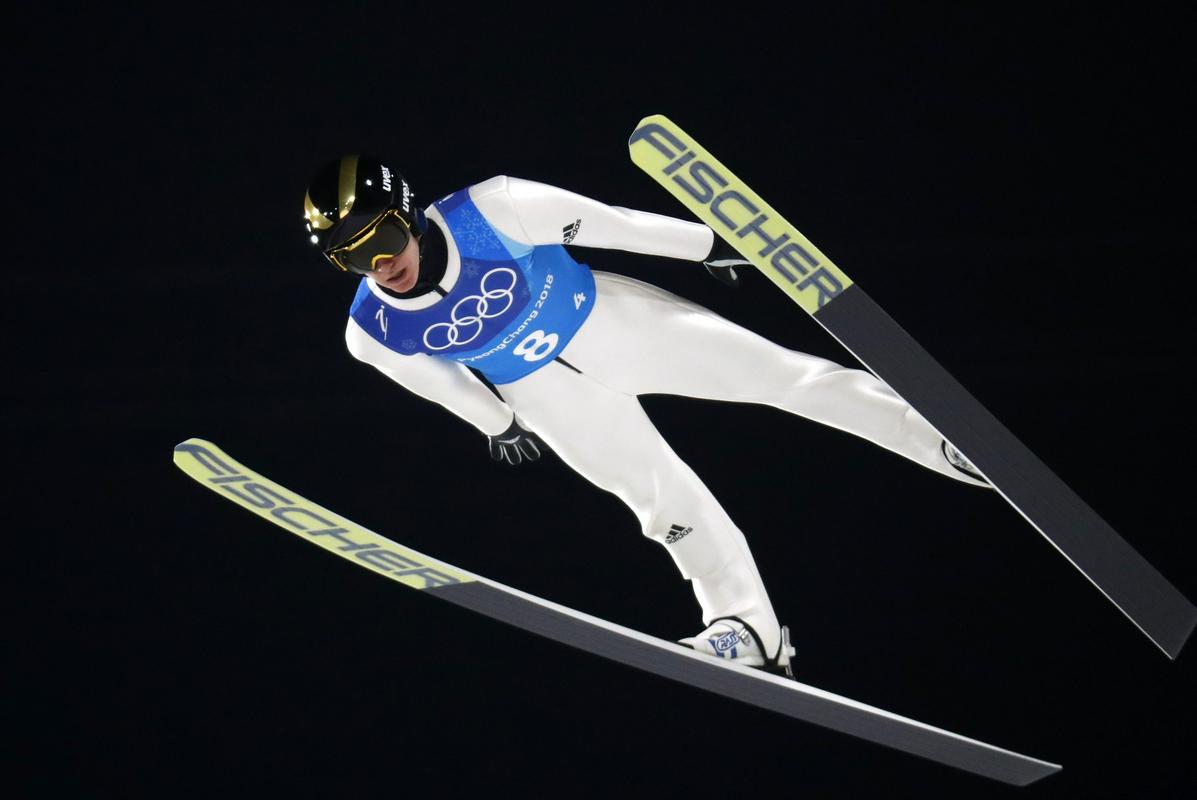
Slovenian ski jumpers in Pyoengchang fell short of their goal and ended up without a medal after three competitions. In the team competition on the large hill, their only chance for a medal would have been a major stumble by their competitors, but that did not happen. Slovenia was more than a hundred points behind Poland, which took the bronze. Peter Prevc was the best Slovenian jumper (134.5/133.5 m), as had been the case in both individual competitions.
No outstanding jumps by Slovenians
Slovenia was already fifth after the first series. It was too far behind the leading three nations to retain any hopes of a medal. A fight with the Austrians for fourth place followed. At the beginning of the final round, Jernej Damjan (129.5 meters) helped Slovenia to overtake Austria (Kraft with 26.5 meters), but then Anže Semenič had a poor jump (he was late on the takeoff in both series), and because Tilen Bartol also had a shorter jump than in the first series, Prevc could not overcome the difference. Slovenia therefore ended up repeating its performance from the 2014 Sochi Games. “Both my jumps were better than yesterday. They were at a higher technical level and I could enjoy my time in the air more. Realistically speaking, our performance at these games was comparable to the season as a whole,” commented Prevc.
Norway increased its lead substantially after Tande’s jump
As expected, the medals were split between Norway (Tande, Stjernen, Forfang, Johansson), Germany (Geiger, Leyhe, Freitag, Wellinger), and Poland (Kot, Hula, Kubacki, Stoch). The “Vikings” had a two-point lead over the Germans and a five-point lead in the first series, but the competition came close to being decided after Daniel Andre Tande’s jump (in the first group of ski jumpers). At 140.5 meters, his jump was the longest of the day. Geiger’s jump was 6.5 meters shorter. This gave Norway a lead of approximately 20 points, which the team retained until the end. In the fight for the silver medal, Germany was slightly more successful than Poland. Both Andreas Wellinger and Kamil Stoch had jumps of 134.5 meters in the final round, but Wellinger was awarded 3.9 more points by the jury, which proved to be decisive.

































































